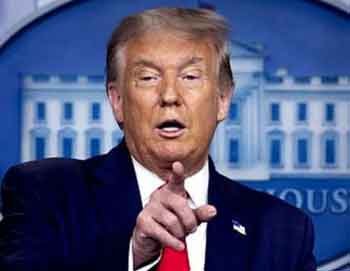INVC NEWS
New York / Beijing : The covert world of espionage has long been an arena of intricate maneuvers and clandestine operations. For the United States Central Intelligence Agency (CIA), penetrating the veil of secrecy within China has proven increasingly challenging. This difficulty has significantly curtailed America’s access to crucial insights, limiting their awareness regarding pivotal issues such as the relationship between Chinese leader Xi Jinping and his inner circle, particularly concerning sensitive matters like Taiwan.
Espionage Dilemma: CIA’s Struggle for Intel in China
According to a former senior American intelligence official, comprehending the intricacies of Chinese leadership’s intentions and plans has become an elusive task. Nearly a decade ago, Beijing’s covert agents systematically dismantled Chinese informants working for the CIA. This takedown dealt a severe blow to America’s intelligence network within China, resulting in the demise of numerous individuals—some of whom were high-ranking Chinese officials—either through assassination or imprisonment.
The security-first regime under President Xi Jinping has instituted a formidable surveillance apparatus, rendering espionage operations in China exceedingly challenging. Leveraging pervasive corruption within the Communist Party and governmental departments, the CIA once recruited scores of officials by alluring them with monetary incentives, morphing them into informants. However, as China meticulously apprehended each traitor, the intelligence network collapsed, inflicting a substantial setback to American espionage endeavors.
Exploiting Communication Gaps: Beijing’s Advantage
During the communication breakdown between the CIA and its assets, Beijing capitalized on the vulnerability, aiding in the annihilation of the espionage network. This episode unfolded during Xi Jinping’s ascent to power. Post infiltrations by the CIA, Xi emphasized the paramount significance of security and allegiance within the ranks. China, in a paradigm shift, has resorted to turning American citizens into spies, a practice formerly associated more with the United States than with China.
Recently, China even co-opted former CIA agent Kevin Patrick Mallory, drowning in financial woes, to switch allegiance and potentially sell classified American secrets, including the identities of undercover American intelligence officers stationed in China. In a revelation by the U.S. Department of Justice this August, the arrest of two American sailors exposed accusations of providing military intelligence to China, both having been born in China but holding American citizenship.
Conclusion
The erosion of America’s intelligence web in China has manifested as a monumental impediment to their understanding of China’s inner workings. Beijing’s strategic overhaul in countering foreign espionage, alongside their shrewd recruitment tactics, has reversed the dynamics of intelligence gathering between the two nations. The once-powerful American espionage machinery within China now faces severe limitations, signifying a significant shift in the global intelligence landscape.
















